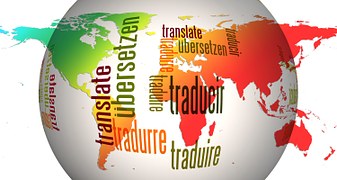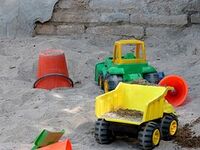Wikia is global. Anyone from around the world can use it, and we support as many languages as we can so people can use the site in their native language whenever possible. Right now, between Wikia Staff and the International Volunteer Team, we support eleven different languages. One of the key responsibilities of these staff members and volunteers is to translate the features and functions that people use every day into these supported languages.
How exactly does that translation process work, though? There are many people involved, all of whom contribute to making sure translation is done as efficiently as possible. Our most recently-introduced feature, the Community Page, is a great example of how that process works.
From Concept to Development[]
A few months ago, our Product Team decided to take the concept that became the Community Page and select it for development. Once that happened, a team of engineers worked with the feature's Product Manager, Trevor, to build the Community Page. Part of the development process for a new feature includes a lot of work with the Community Support Team, allowing us to provide feedback we think will be important to the community, and to work on crafting a communication plan for when the feature is rolled out. The bulk of that communication is handled by a Communication Lead from our team. In this case, that Communication Lead was Kirkburn.
As part of the ongoing development process, Trevor came to our weekly Community Support Team meeting a few weeks ago and presented the feature to us. He soon began working with the Translation Manager, Lucho, to begin the internationalization process based on the estimated release date for the feature.
The Translation Process[]
Once Lucho knew the release date, it was time to begin working on getting the feature translated. As a connection between the Product Team and the Community Support Team, Lucho's first action was to inform the translators that there was a new feature that they needed to translate. These translators are a mix of International Volunteer Team members and professional translators, all of whom work together to translate every aspect of the feature into their language. They are assigned a ticket with their task, and that ticket includes a due date for when the translation is due.
In order to keep things consistent, Wikia has a glossary that defines product names in all supported languages. So in the case of the Community Page, that feature's name was translated into all supported language, making sure that terminology is globally consistent and makes sense in all languages.
Translation Management System[]
As part of the translation process, the translators have access to a tool called the Translation Management System. In the images below, the image on the right shows the content in individual strings—this is the text of every piece of a given feature—with a reference to the context on the right side.
Translators translate the content string by string. We refer to each individual sentence as "one string". This makes the review and approval process easier than it would be if we were dealing with one giant wall of text.
Once the translations of the strings were completed for the Community Page, Lucho informed Wikia's International Team—community managers and IVT members—that it was completed. Tickets were assigned to the different language speakers letting them know it was time to review and approve the strings in the translation management tool. Just like with the translations, this task had a firm due date based on the estimated release date of the Community Page.
Communication Plan[]
The feature itself isn't the only thing that has to be translated. As part of the release process for a new feature, the Communication Lead works with the Product Manager in order to write an announcement letting the community know that a new feature is available. In this case, Kirkburn wrote and ultimately posted that blog in English. Blogs are written in English first, and then they are translated into our supported languages. This requires the creation of another task ticket, so international community managers and IVT members can create the announcement for their supported communities.
Pulling Strings and Testing[]
Once all of of the Community Page strings were translated and approved, and we had a translated announcement for the community, Lucho let Trevor know that the internationalization was ready. At that point, the translations were merged with the development code using internationalization tools in a process we call "pulling the strings."
"Pulling the strings" means, that our engineers take the translated content from our internationalization management tool and transfer it over to Wikia, to be merged with the new tool, like the Community-Page, into all of our supported languages.
After this step, the feature was almost ready for release. A few days before the release, we did a quality check where the international community managers were invited to a sandbox to play with and test the new function in their respective languages.
Release[]
Once a feature is ready, it's time for release! The Community Page was added to the site (in this case, we started with the Top 5,000 WAM communities and made it available on-request for everyone else) and the blog post was added to Community Central in all of its many supported incarnations. That's when you give us your feedback, and we decide whether we need to make any changes to the feature—which, of course, means we go through the internationalization process for any changes that are made.
Hopefully this has given you a new insight into product development here at Wikia. We'll have even more blogs about how we build features moving forward. In the meantime, let us know if you have any questions about internationalization. We'd be happy to answer them!
Click here to follow the Fandom staff blog.
Click here to sign up for the From the Desk of Community email newsletter.
Join our Official Discord server for registered editors!





